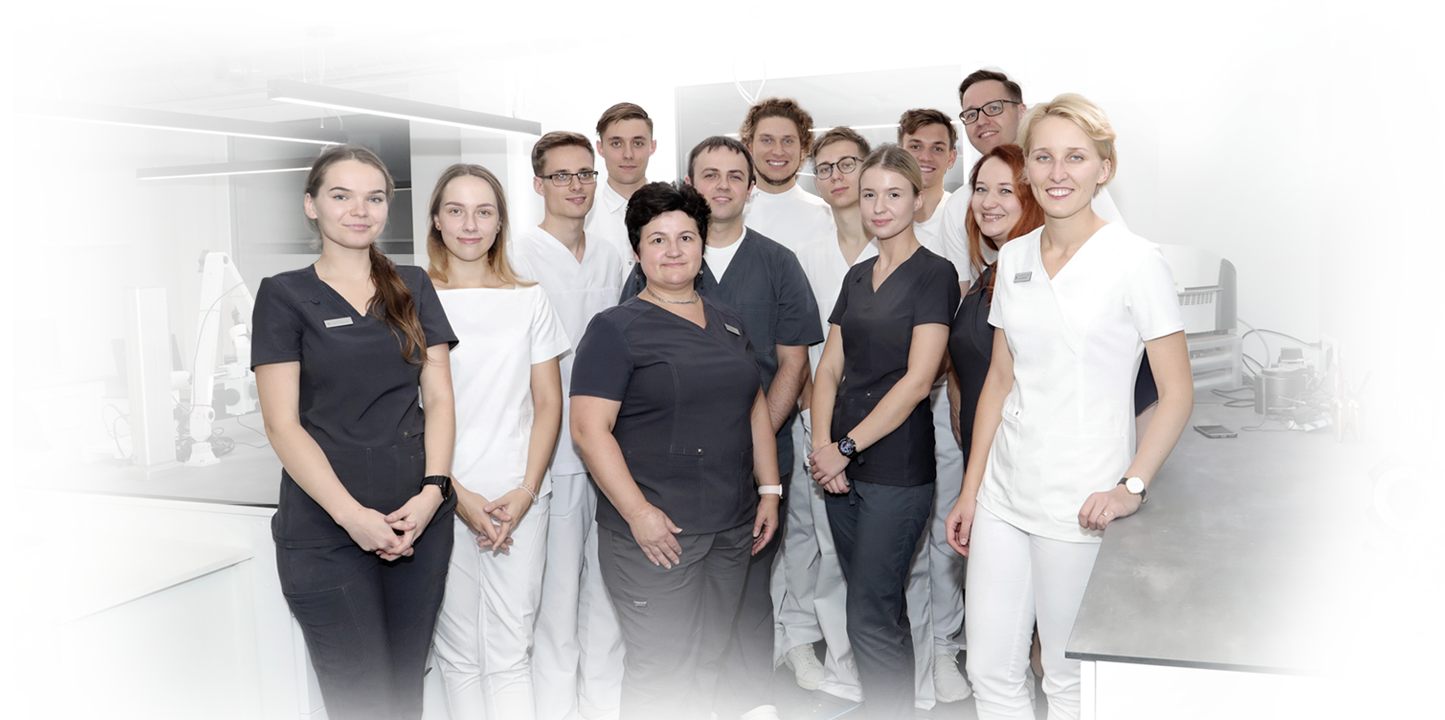
Step 1
Treatment planning. Digital patient model.
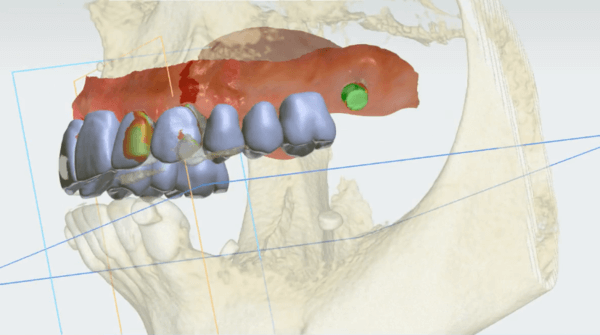
- Examination
- Image acquisition
- Reference objects
- Alignment
- Verification
- Restorative treatment plan
Step 2
Guides and immediate prosthetics
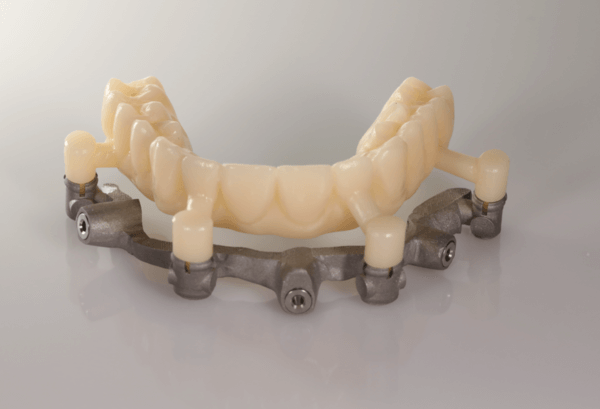
- Implant and abutment selection
- Guide design and manufacturing
- Immediate prosthetics design and manufacturing
Step 3
Guided surgery and loading strategy
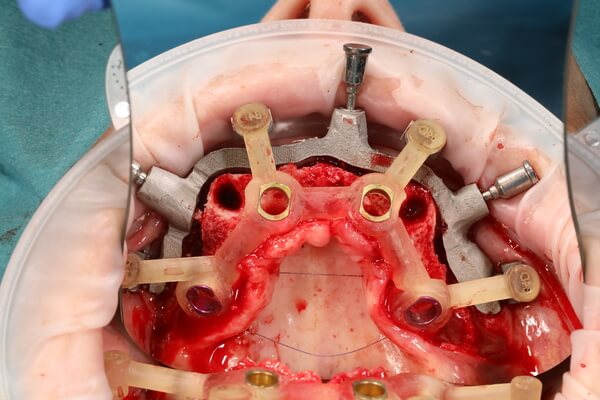
- Guided impant positioning
- Confirmation
- Primary stability
- Healing abutments
- Immediate restoration or loading
Step 4
Digital impressions and registration
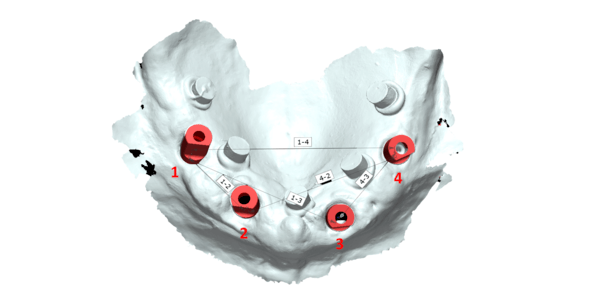
- Reference selection
- Occlusion registration
- Implant position registration
- Repositioning accuracy
Step 5
Labaratory procedures
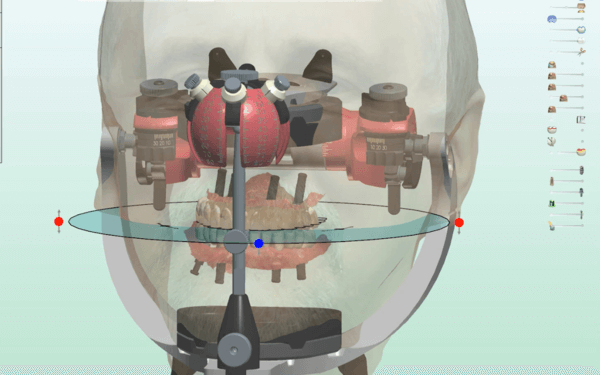
- Verification of registrations
- Model fabrication
- Abutment selection
- CAD/CAM and 3D printing
- Finalisation
Step 6
Delivery of final restorations. Follow-up
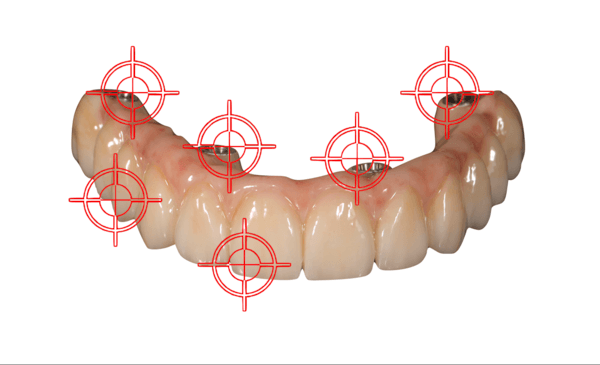
- Try-in
- Fit evaluation
- Passive-fit
- Adjustments
- Delivery
- Follow-up
- Maintenance
Courses and Lectures
Prof. V. Rutkunas, has delivered lectures and courses in many international meetings, including IADR, ICP, DDS, EPA, EAO and other organizations as well as several study clubs.
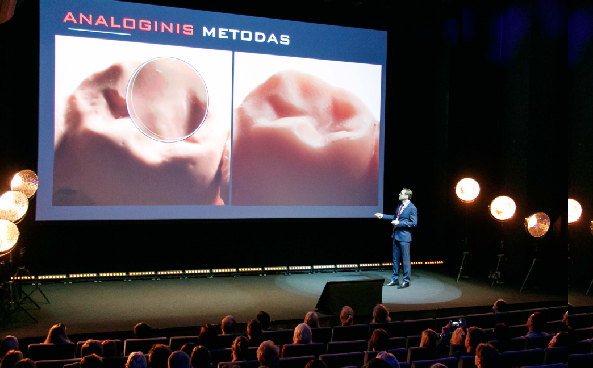
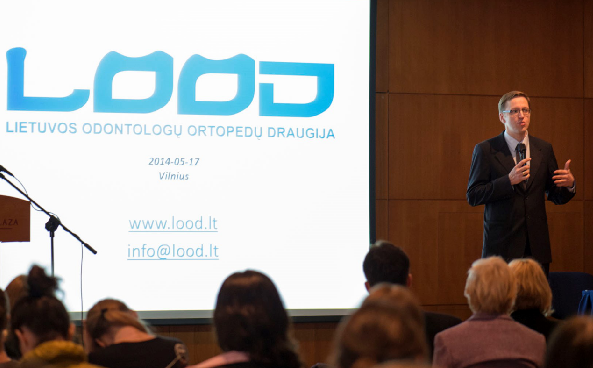
Main lecture and course topics:
- Improving the fit of teeth and implant supported restorations through digital workflow
- Accurate digital implantology and prosthodontics workflow for implant-supported restorations
- Accurate digital implantology and prosthodontics workflow for fixed partial implant prostheses
- Accurate digital implantology and prosthodontics workflow for fixed and removable full-arch implant prostheses
- Static and dynamic implant navigation and its synergy with digital prosthodontics
- Digital workflow and strategies to improve biocompatibility of the prostheses
- Other
Prof. V. Rutkunas is available for: lectures, hands-on courses, also as editor, chair, moderator.
For inquires please contact: vygandasr@gmail.com
For full-text papers, please visit: WWW.DIGITORUM.EU/PUBLICATIONS
- Linear and volumetric measurements of local and global deviations in 3D images obtained with industrial, lab, intra-oral, and face scanners.
- Object position evaluation using coordinate measurement machine (CMM).
- Implant placement (dynamic and static navigation) accuracy evaluation using DICOM and STL data.Surface profilometry, SEM, optic microscopy.
- Objective evaluations of passive-fit of prosthetic components. Biocompatibility evaluation using cell cultures.
- In-vivo animal model research.microCT analysis.
- Histomorphometric and histologic analysis of tissues.
- Testing of mechanical properties of the materials.
- Fatigue analysis.
- Mastication simulation.
- Digital planning of smile, implants, ortho appliances, and prostheses.
- 3D printing of stents, splints, aligners, models, and prostheses.
- Dry and wet milling.
- 3D bioprinting.
- Bruxism research using BruxAPP.
- Clinical trials.
Contact for the inquiries regarding research collaboration: vygandasr@gmail.com
https://www.youtube.com/watch?time_continue=6&v=0tPyAPKK3tA&feature=emb_logo
https://www.youtube.com/watch?time_continue=3&v=cWOXKjIbRN0&feature=emb_logo
https://www.youtube.com/watch?time_continue=3&v=uj6R76CNOJc&feature=emb_logo
Contact for the inquiries regarding research collaboration: vygandasr@gmail.com
Are you ready for the new era in regenerative dentistry?
3D bioprinting for bone regeneration: translating research into clinical practice
More than 50 percent of dental implant cases require bone augmentation procedures of various extend. Conventional techniques are often aggressive, less comfortable to the patient, and require a longer duration of surgery, which can affect the healing process and treatment outcome. 3D printed bone scaffold could help to avoid these problems. Moreover, it could be custom made before the surgery and have specific features that are more compatible with the host tissues.



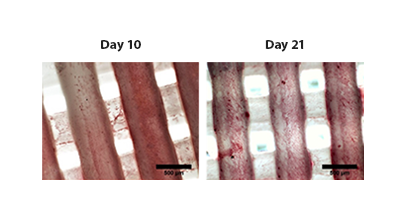
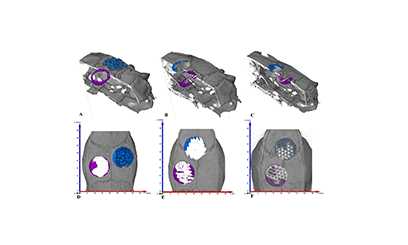

In-vitro and animal study data showed favorable bone regeneration outcomes with OSSEUM-4D type scaffolds
Clinical trials
- Post-extraction defect regeneration study in humans.
- Guided bone regeneration efficiency of OSSEUM4D scaffolds.
Data from clinical trials soon will be published

DIGITORUM LAB specializes in providing the best quality of functional and esthetic dental prostheses fabricated through the digital workflow and using the newest technologies. The lab is heavily involved in the research, evaluating the accuracy of digital impressions, bite registrations, 3D printing, and milling, implant guides, repositioning of prosthetic components, etc., which are constituent parts of TF workflow. Lab members participate in innovative research projects of DIGITORR team as well.
Modern dental implantology clinic
Vilnius, Lithuania
- One of the best experts in the field
- Clinical and research leaders
- Newest technologies
- Modern and innovative dental services
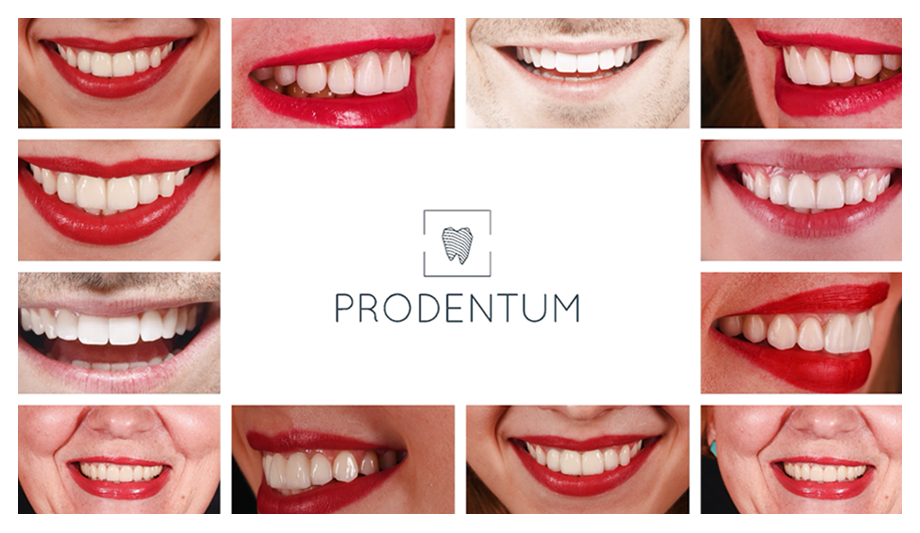
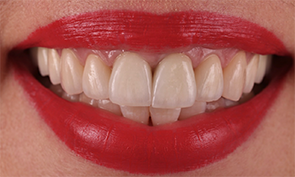
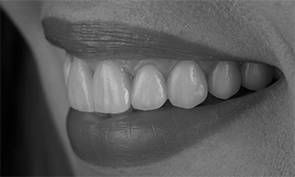
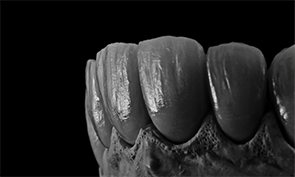
Short CV
- 1995 -2000 Undergraduate studies in the Faculty of Dentistry, Kaunas Medical University, Lithuania.
- 2002-2004 PhD studies in Department of Masticatory Function Rehabilitation, Tokyo Medical and Dental University, Japan.
- 2004 recipient of “A.R. Frechette 2004 New Investigator Award” prize in IADR) meeting, Honolulu (USA).
- From 2005 Assistant Professor, Center of Prosthodontics, Institute of Odontology, Vilnius University.
- 2006 PhD degree, Institute of Odontology, Vilnius University/ Tokyo Medical and Dental University.
- From 2006 Head of Division of Prosthodontics, Institute of Odontology, Vilnius University.
- From 2009 Associated Professor, Division of Prosthodontics, Institute of Odontology, Vilnius University.
- 2019 Full professor in Institute of Odontology, Faculty of Medicine, Vilnius University, Lithuania.
- Founder of the dental clinic ProDentum, DIGITORUM lab and education center.
- Leader of the DIGITORR (Digital Oral Rehabilitation Research) team, focusing on validation of the digital workflow in prosthodontics and implant dentistry, 3D printed bone scaffold, bruxism monitoring etc.
- Developer of the TF workflow (Accurate Digital Implantology and Prosthodontics).
- President of Lithuanian Society of Prosthodontics. Board member of the European Prosthodontic Association (EPA), Digital Dentistry Society (DDS).
- Main research interests: accuracy of the digital implant placement, digital prosthodontics, bioengineering. Reviewer in 14 peer-reviewed journals.
- Co-author of 6 textbooks.





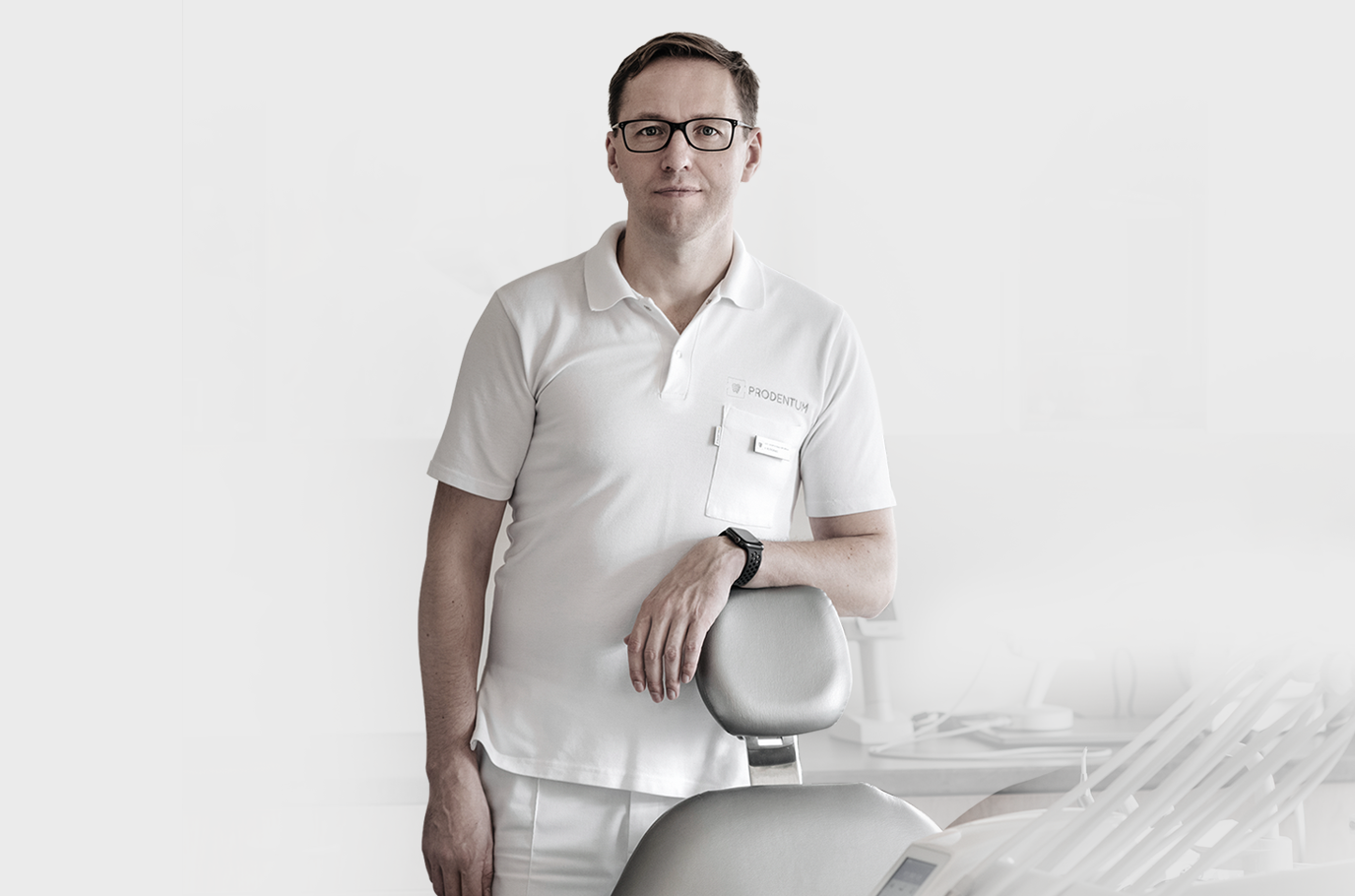
 3D bioprinting for bone regeneration
3D bioprinting for bone regeneration
